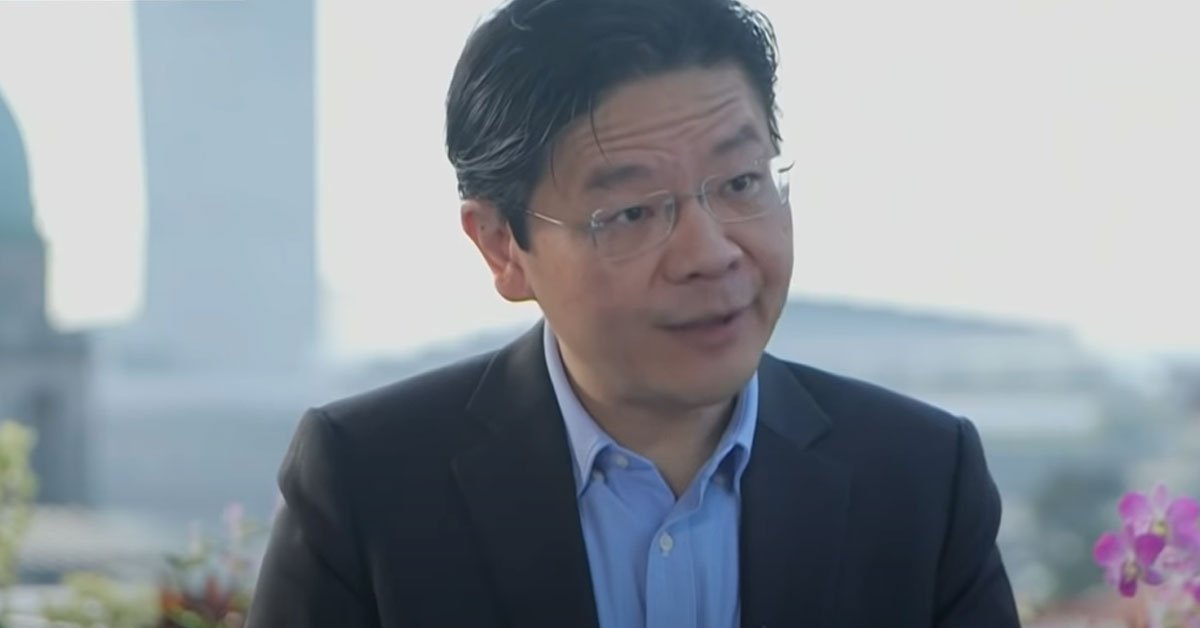With the government once again tightening COVID-19 restrictions, residents all over Singapore want only one thing: answers.
Why the tightened measures? Are we still planning to live with the virus? Why can’t the Samurai Burger be on the menu all year long?
Fortunately, Finance Minister Lawrence Wong answered all these questions (except the last one) in a recent interview with Bloomberg Television.
Lawrence Wong: Decision to Implement New Measures is a ‘Very Difficult One’
The latest COVID-19 curbs have been implemented to ease the tremendous pressure faced by the healthcare system and its workers, Mr Wong said.
“With these temporary restrictions now, we are going all out to stabilise our healthcare protocols and augment our healthcare capacity.”
Despite it being a necessary decision, Mr Wong said it was a “very difficult” one to make.
By slowing the pace with which the virus spreads, we can keep our healthcare system intact and under control, he added.
“We want to avoid unnecessary deaths that may arise when the entire healthcare system gets overwhelmed.”
Preparing Healthcare System to Handle 5,000 Cases Daily
Our daily case count is approaching the 2,000 mark, but according to Mr Wong, this number could shoot up to 5,000 in the future.
This is another reason the authorities have reimposed some COVID-19 restrictions, to give them time to prepare more medical centres to handle the larger influx of COVID-19 patients.
Even If Only 0.2% Of Patients Fall Severely Ill, It Could Still Overwhelm our Healthcare System
Some have argued that with just 0.2% of COVID-19 patients falling ill, there is no need for more restrictions as our hospitals should have the capacity to deal with them.
However, as Mr Wong elucidated, this is not the case.
“Think about it this way. We know that about 0.2% of cases need ICU care and that appears quite small to people. But to provide timely care for the persons who need ICU treatment, the doctors need to admit about 10% of infected persons to our hospitals, because these are the ones that the doctors would triage and identify as the more vulnerable persons – they could be older, serious symptoms, comorbidities,” he said.
And if you have 5,000 cases every day, 10% of that is 500, with each person staying at least a week in the hospital.
“That is a lot of hospital beds, and that is what we are trying to do, to augment our hospital system with medical centres, medical facilities. It is not just equipment, it is medical personnel as well,” he explained.
Are We Still Planning to Live With COVID-19?
In short, the answer is yes.
Mr Wong said that Singapore’s overall strategy in dealing with COVID-19 has not changed; the authorities still want to reopen the economy, but want to avoid overwhelming the healthcare system which would cause unnecessary deaths.
And even when we do reopen, cases could remain high, as the virus will continue to spread.
“That is what living with Covid means and that is what we are on the journey towards,” he said.
Here’s the full interview:

What Are the Restrictions & When Will They End?
The latest round of coronavirus curbs kicked in yesterday (27 Sep), and will remain in place till 24 Oct.
Social gatherings will now be limited to two participants, down from the previous five. Residents can only have two unique visitors a day, and only one social gathering a day is permitted.
While there’s no change in dining-in measures at hawker centres and coffee shops, only groups of up to two will be allowed to dine in at restaurants. They must be fully vaccinated, of course.
In addition, working from home will be the default (previously, up to 50% of employees can head back to the workplace), while home-based learning for primary and special education schools has also been extended to 7 Oct as a precaution.
Seniors aged 60 and above are strongly encouraged to avoid attending religious activities, even if fully vaccinated, and there’s a two-passenger limit for taxi and private-hire cars.
From 4 Oct, booster shots will also be available to those aged between 50 and 59 who have completed their vaccination regimen.
Read Also:
- BooksActually’s Kenny Leck Responded Publicly About Allegations & Will No Longer be Owner of the Bookshop
- 10 Facts about Squid Game That You Probably Didn’t Know About
Featured Image: YouTube (Bloomberg Markets and Finance)
